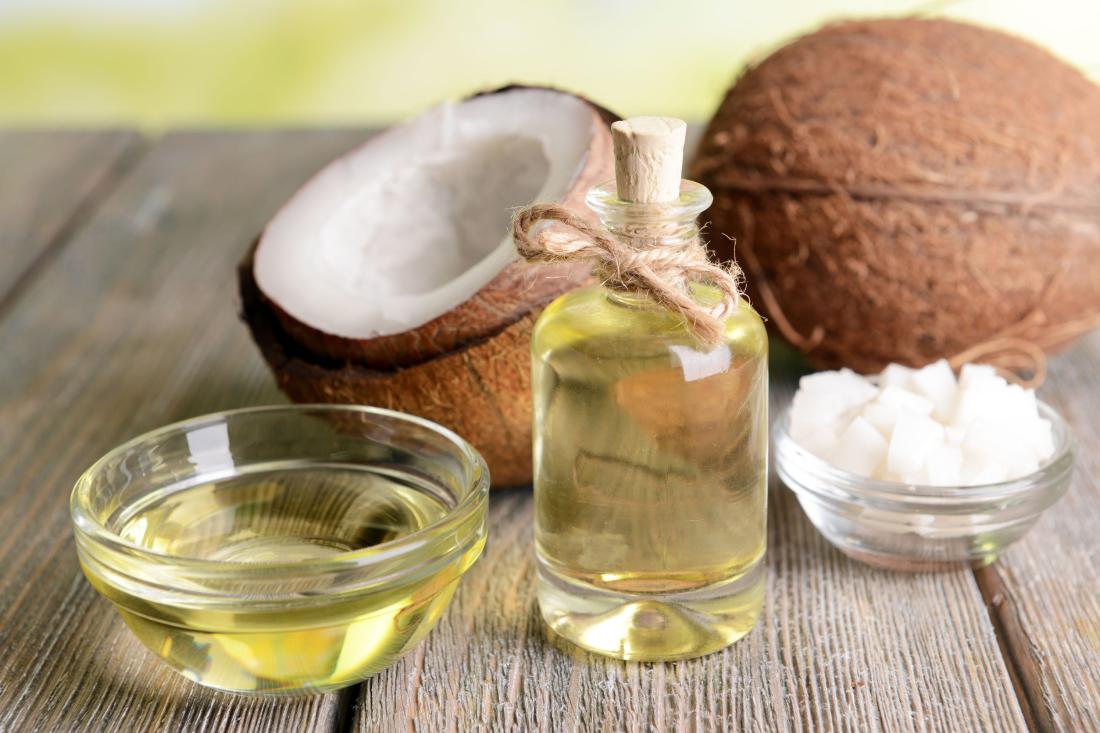
Coconut oil is an incredible superfood that works wonders internally and externally of our bodies. Addtionally 1,500 studies have indicated that it’s actually a miracle extract from nature. Presently that medical study acknowledges the boundless advantages of saturated fats for instance those found within this oil, more people are turning to this precious treasure for comprehensive advantages. It’s firmly growing in recognition as a staple in food preparation, health, and beauty regimens.
There is a growing body of proof that coconut oil offers some health advantages, both internally and externally.
1. A Boost in Great Cholesterol
Coconut oil is said to modestly increase one's level of excellent cholesterol.

2. Improves Satiety
Many of the health claims for coconut oil refer to study that used a specific formulation of coconut oil made of 100% medium-chain triglycerides (MCTs), not the commercial coconut oil most available on supermarket shelves. MCTs have a shorter chemical form than other fats, and so are rapidly consumed and applied by the body. After digesting, MCTs move to the liver where they are instantly used for energy. The theory is that this rapidly consumed structure boosts satiation and blocks fat storage. Coconut oil consists of mainly lauric acid, which is not an MCT. Lauric acid is consumed more gradually and digested like other long-chain fatty acids. So the health advantages reported from a particularly formulated MCT coconut oil that consists of medium-chain triglycerides other than lauric acid can’t be used directly to commercial coconut oils.

3. Stress Relief
Pure coconut carrier oil for aromatherapy is very comforting and aids relief stress. Applying it to the head, followed by a gentle massage, aids eradicate mental tiredness. Study indicates that virgin coconut oil provides remedy from stress and has antioxidant features.

4. Coconut oil helps maintain dental health.
The lauric acid in coconut oil aids avoid tooth deterioration and gum defect by tackling the bad bacteria that drives to these dental problems. In addition, oil pulling using coconut oil can aid eliminate harmful bacteria in your mouth and lower your risk of periodontal defect, which includes inflammation of the gums.

5. Healthy, Shiny Hair
Many handmade hair care conditioners apply coconut oil as the primary ingredient. The fat-rich oil may aid to maintain hair strong and hearty and decrease damage that hair incurs from day-to-day wear and tear. The thick oil can decrease protein loss, leaving hair healthy and shinier. It can also aid gentle brittle, frizzy, flyaway strands.

6. Feats as a Salve for Wounds and Burns
Coconut is great for the skin, particularly in the treatment of wounds, burns, and dermatitis. It also performs as sunblock, and as a moisturizer for the skin, credits to the two elementary fatty acids in natural coconut oil, caprylic and lauric, and to its antioxidant component, which combine to decrease inflammation under the skin and boost better curing.

7. To moisturize and nourish skin
The similar features make coconut oil excellent for skin as well. A lot of people like to apply it as a unrefined moisturizer. Its unrefined antioxidant characteristics make it good for stopping wrinkles and skin inflammation.

8. Feats as an Anti-aging Component
Fertile with antioxidants, coconut oil is well-known to delay the aging process, typically by constraining any excessive stress on the liver.

9. Aids With Weight Loss
Coconut oil also can aid with weight loss, as it performs as a fat burner and a calorie burner, particularly with doses of natural coconut oil. It also serves as an appetite suppressant. One research indicates that the capric acid in coconut oil aids promote thyroid performance, which consecutively decreases a body's resting heart rate and helps in burning fat for an expanded energy boost.

Nutrition
1 tbs of coconut oil contains:
- 121 calories
- 0 g of protein
- 13.5 g of fat, of which 11.2 g is saturated
- 0 milligrams (mg) of cholesterol
Coconut oil includes vitamin E, but no fiber and little to no other vitamins or minerals.

Coconut oil is almost 100% fat, most of which is saturated fat. Nevertheless, the type of fat in coconut oil distincts from that of many animal products, which primarily reside of long-chain fatty acids.
Coconut oil is high in MCTs. These are tougher for the body to transform into stored fat and effortlessly to burn off than long-chain triglycerides (LCTs). Supporters of coconut oil feature a lot of its advantages to the high MCT content.
Consumption of coconut oil per day
Researches have shown that 2 tablespoons (30 ml) seems to be an adequate portion.
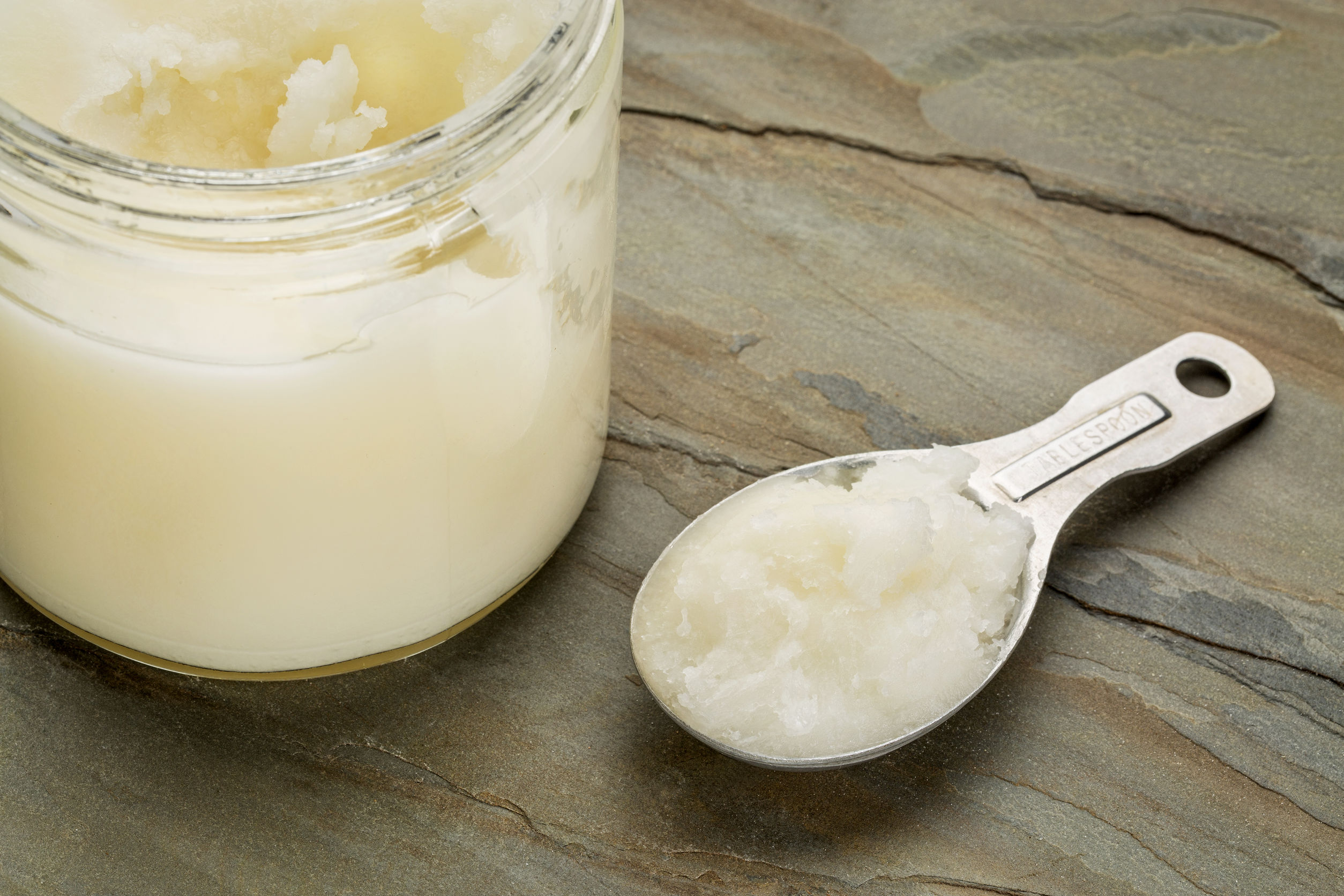
This has been found to improve weight, cut down belly fat and boost other health markers.
Some researches used up to 2.5 tablespoons (39 grams) per day, counting on calorie consumption.
Two tablespoons supply about 18 grams of medium-chain triglycerides, which is inside the scope of 15–30 grams that has been found to boost metabolic rate.
Eating 2 tablespoons (30 ml) per day is a moderate amount that allows room for other healthy fats in your diet, such as nuts, extra virgin olive oil and avocados.
Nevertheless, kick off gradually to prevent the nausea and diarrhea that may occur with high consumption. Take 1 teaspoon per day, slowly increasing to 2 tablespoons per day over 1–2 weeks.
How to Eat Coconut Oil
1 . Use it as a cooking oil
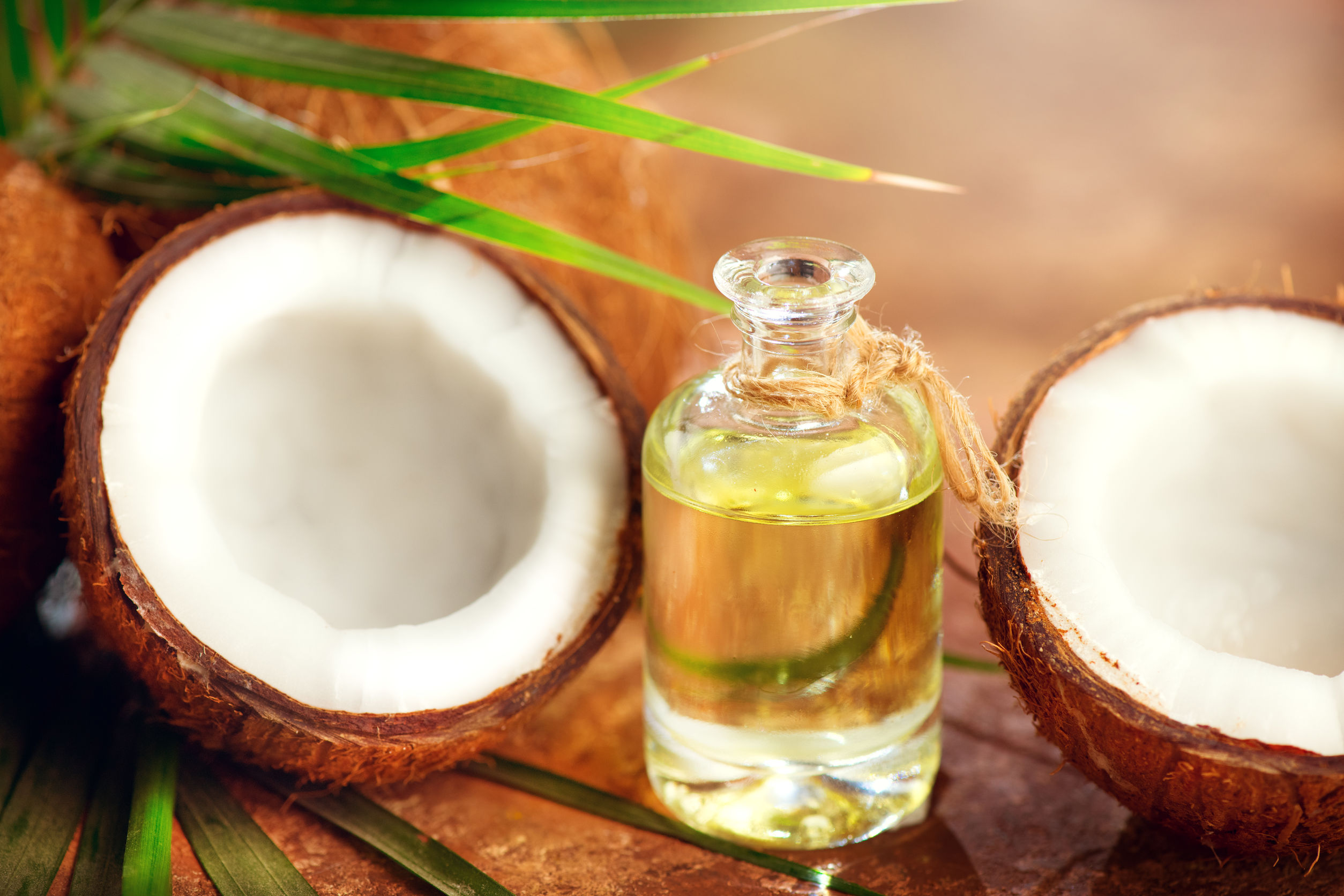 We can use coconut oil as as cooking oil.
We can use coconut oil as as cooking oil.
Coconut oil stays solid at room temperature. Its saturated fatty acids maintain its stability at high temperatures, making it a perfect cooking oil.
Still, in comparison to other cooking oils, such as canola and soybean oils, coconut oil has a comparatively low smoking point of 339.8°F (171°C). This means that it may generate carcinogens after use in constant deep frying.
As a result, people should refrain from deep frying foods in coconut oil and alternatively go for oils with higher smoking points, such as canola, corn, or soybean oils.
For usages other than deep frying, substituting traditional cooking oils with coconut oil is a simple method to include more coconut oil into the diet.
Methods to cook with coconut oil include:
- using it when pan-frying or sauteing vegetables, meat, eggs, or fish
- stirring it into sauces and salad dressings
- coating meat or poultry in coconut oil and spices before baking
2. Add It To Your Recipes
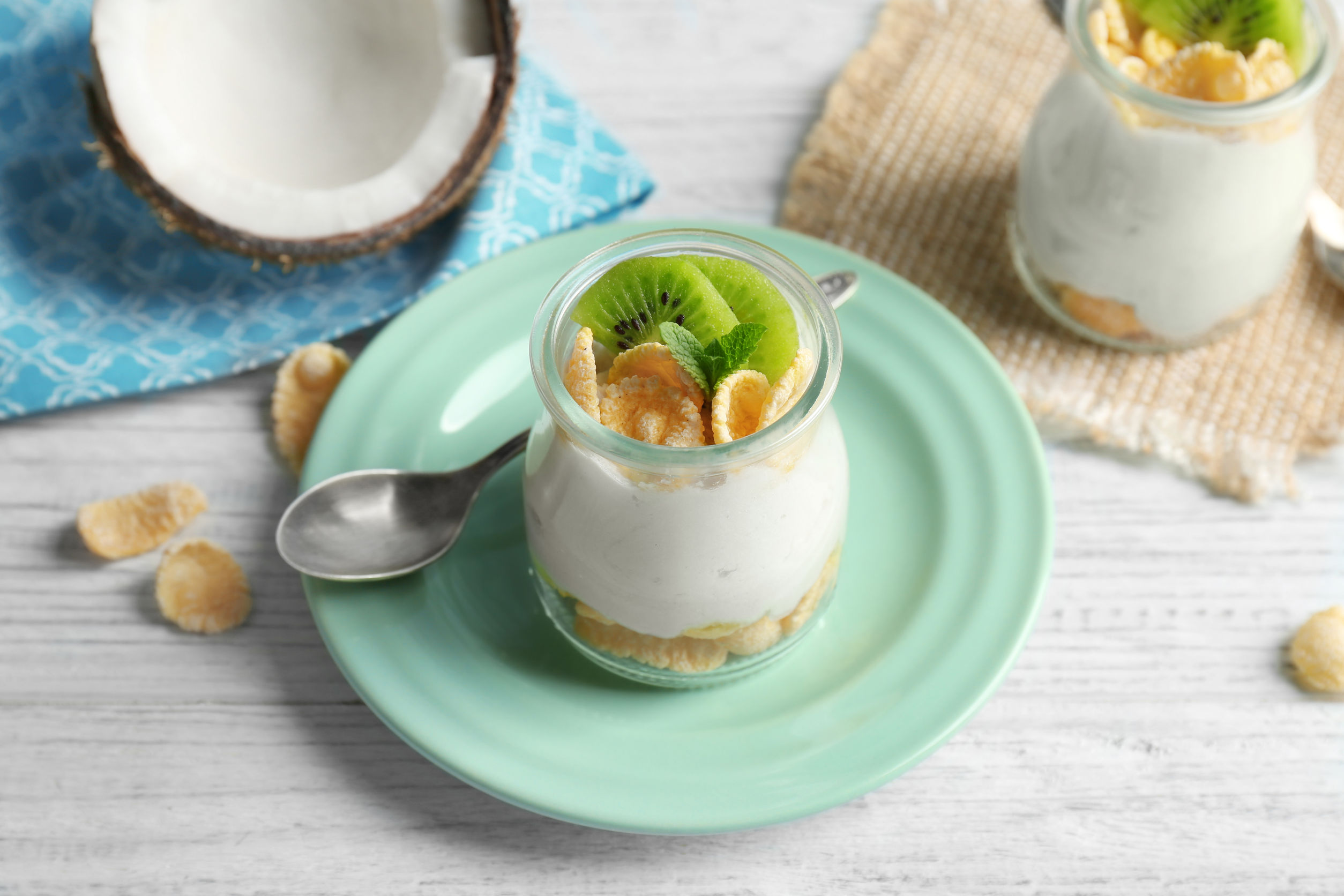 Coconut oil is quite felxible and can be simply replaced for butter or oil. Today, many people have initiated adding coconut oil to smoothies, teas and cold drinks. To add it to your beverages, target for a little amount of coconut oil and begin slowly. It adds a luscious copiousness to hot drinks too.
Coconut oil is quite felxible and can be simply replaced for butter or oil. Today, many people have initiated adding coconut oil to smoothies, teas and cold drinks. To add it to your beverages, target for a little amount of coconut oil and begin slowly. It adds a luscious copiousness to hot drinks too.
3. Add Coconut Oil To Your Coffee or Tea
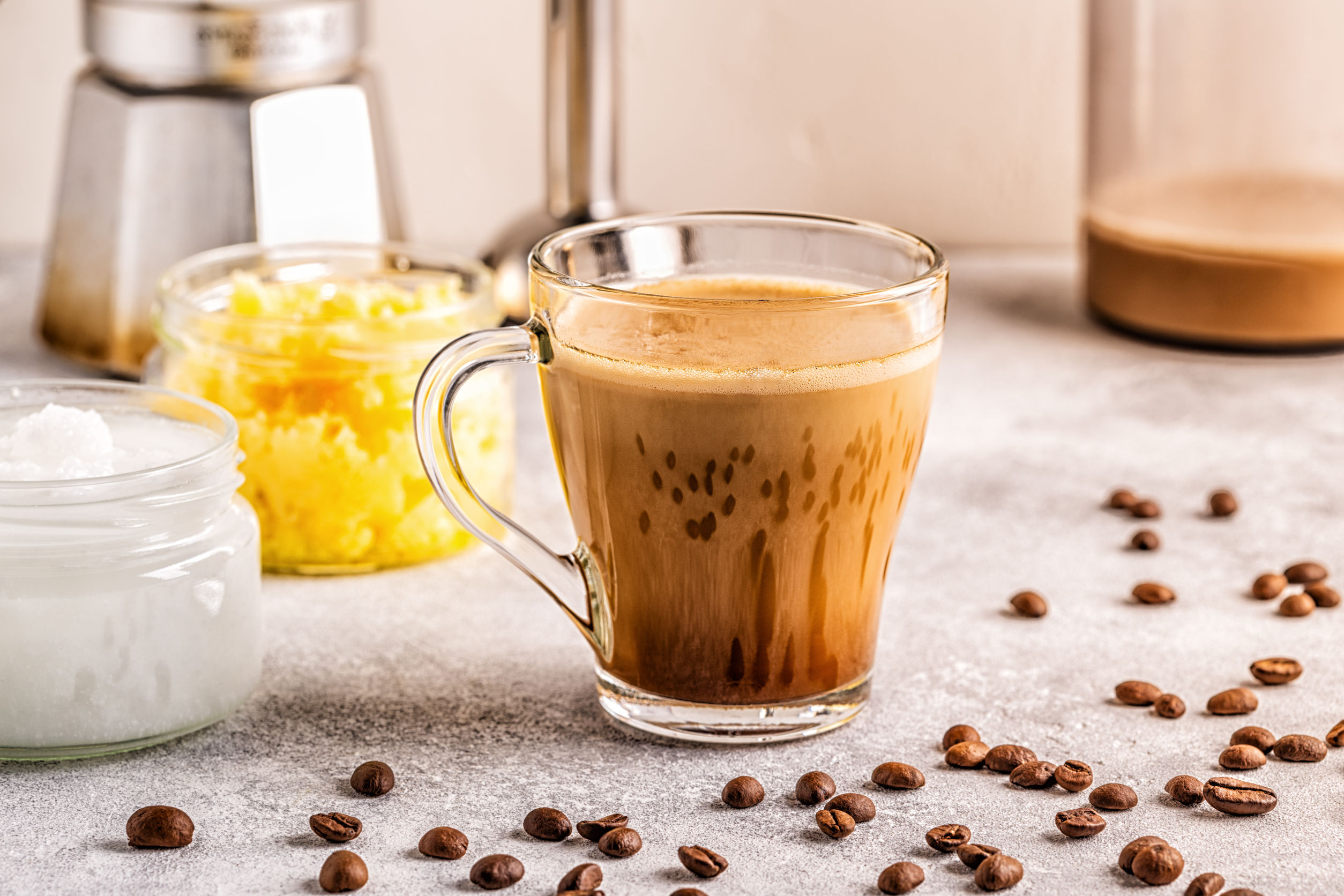 Consume more coconut oil by adding it to your coffee or tea. Just add a teaspoon or two to your hot drink and mix until the coconut oil is melted. You can also combine coconut oil into your coffee for a frothy treat!
Consume more coconut oil by adding it to your coffee or tea. Just add a teaspoon or two to your hot drink and mix until the coconut oil is melted. You can also combine coconut oil into your coffee for a frothy treat!